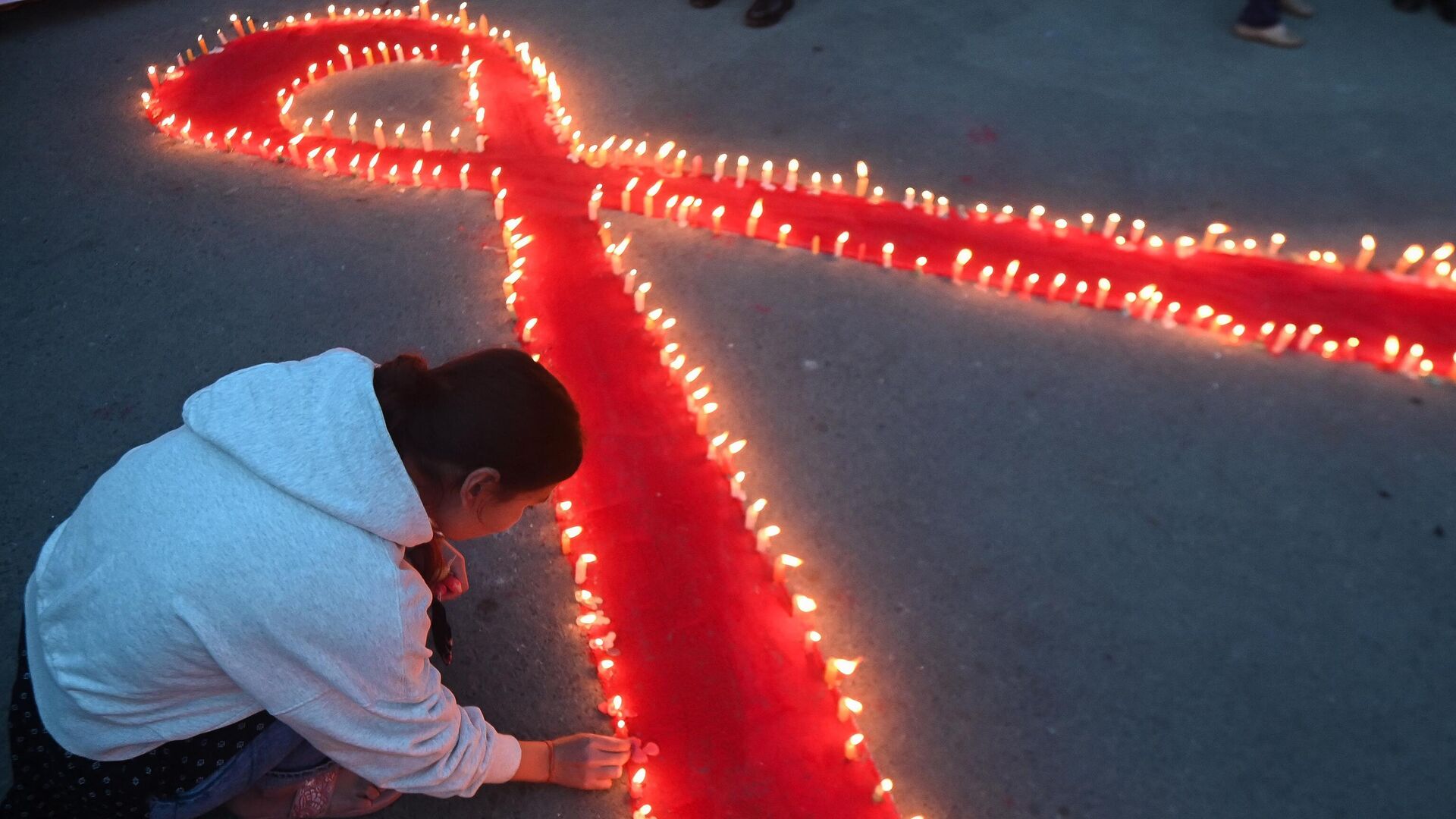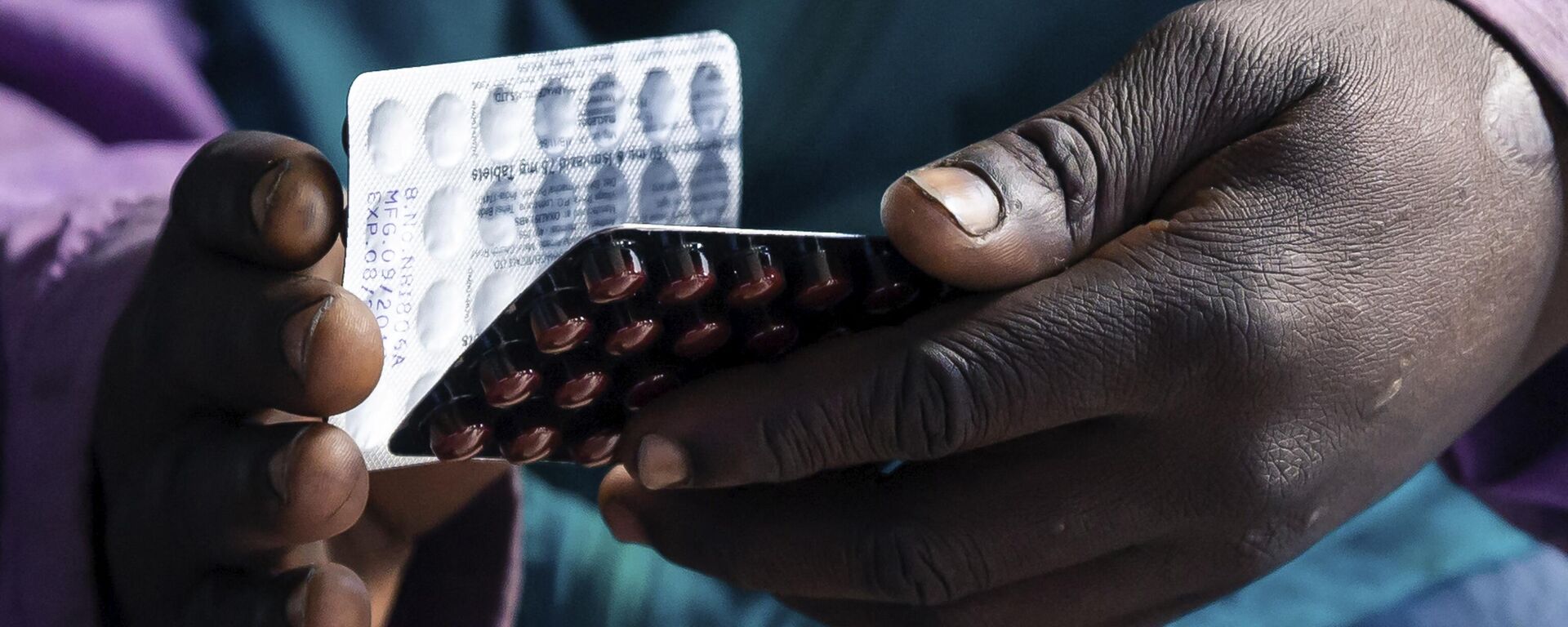https://en.sputniknews.africa/20231202/south-africa-pledges-to-end-aids-by-2030-while-still-facing-many-challenges-ahead-goal-1063911072.html
South Africa Pledges to End AIDS by 2030 While Still Facing Many Challenges Ahead Goal
South Africa Pledges to End AIDS by 2030 While Still Facing Many Challenges Ahead Goal
Sputnik Africa
In 2016, United Nations Member States committed to ending the AIDS epidemic by 2030 as part of the Sustainable Development Goals. Some African countries have... 02.12.2023, Sputnik Africa
2023-12-02T17:30+0100
2023-12-02T17:30+0100
2023-12-02T18:54+0100
united nations (un)
hiv/aids
sub-saharan africa
southern africa development community (sadc)
angola
zimbabwe
south africa
unaids
southern africa
disease
https://cdn1.img.sputniknews.africa/img/07e7/0c/02/1063913871_0:0:3072:1728_1920x0_80_0_0_723c54718a9b886769f3b3269a4ea3c9.jpg
South Africa's Health Minister Joe Phaahla promised to ensure that HIV and AIDS are no longer a threat to public health by 2030.The minister highlighted the progress South Africa has made in the fight against the virus. According to Phaahla, the country has made great strides in getting people on treatment, adding that 5.8 million South Africans are already on treatment.He also recalled that the country is not alone in this struggle and can draw inspiration from other African countries.The minister continued by saying that the rainbow nation faces "the biggest challenge" compared to other African countries and "must work harder."According to Phaahla, the province of KwaZulu-Natal, where the event took place, is the most affected by the HIV/AIDS pandemic in the country, but it is taking the lead in responding to it.This year’s theme for World AIDS Day is "Let communities lead". Thus, Phaahla emphasized that the government together with the civil society and other parties and partners has "made a lot of progress". Nevertheless, the country still faces "a lot of challenges" such as teenage pregnancy, which leads to many new infections among young people. UN AIDS, in its address to World AIDS Day 2023, spoke about the importance of community empowerment and the barriers that communities face.While South Africa hasn't yet reached the UN's 95-95-95 targets, its neighbor Zimbabwe has shown some impressive results in HIV/AIDS prevention and treatment: 96% of adults know their status; 96% of adults who are living with HIV are on treatment; and 93% of adults who are on treatment have a suppressed viral load, according to the UNICEF data published in July.Meanwhile, the World Health Organization on Friday called the European region the fastest growing HIV epidemic in the world, despite having all the resources to fight the virus. The organization added that 50% of Europeans receive a late diagnosis, and this has been the case for the past decade.
https://en.sputniknews.africa/20231201/zimbabwe-marks-turning-point-in-hivaids-prevention-as-president-urges-to-raise-awareness-1063896568.html
angola
zimbabwe
south africa
southern africa
Sputnik Africa
feedback@sputniknews.com
+74956456601
MIA „Rossiya Segodnya“
2023
Christina Glazkova
https://cdn1.img.sputniknews.africa/img/07e7/0b/07/1063380906_0:0:673:674_100x100_80_0_0_79628b4d0cd9f29291a57aa13bbf9e7a.jpg
Christina Glazkova
https://cdn1.img.sputniknews.africa/img/07e7/0b/07/1063380906_0:0:673:674_100x100_80_0_0_79628b4d0cd9f29291a57aa13bbf9e7a.jpg
News
en_EN
Sputnik Africa
feedback@sputniknews.com
+74956456601
MIA „Rossiya Segodnya“
Sputnik Africa
feedback@sputniknews.com
+74956456601
MIA „Rossiya Segodnya“
Christina Glazkova
https://cdn1.img.sputniknews.africa/img/07e7/0b/07/1063380906_0:0:673:674_100x100_80_0_0_79628b4d0cd9f29291a57aa13bbf9e7a.jpg
united nations (un), hiv/aids, southern africa development community (sadc), angola, zimbabwe, south africa, unaids, southern africa, disease, pandemic, world health organization (who)
united nations (un), hiv/aids, southern africa development community (sadc), angola, zimbabwe, south africa, unaids, southern africa, disease, pandemic, world health organization (who)
South Africa Pledges to End AIDS by 2030 While Still Facing Many Challenges Ahead Goal
17:30 02.12.2023 (Updated: 18:54 02.12.2023) Christina Glazkova
Writer / Editor
In 2016, United Nations Member States committed to ending the AIDS epidemic by 2030 as part of the Sustainable Development Goals. Some African countries have already made tremendous strides in the fight against this deadly disease, while other states have yet to reach such heights.
South Africa's Health Minister Joe Phaahla promised to ensure that HIV and AIDS are no longer a threat to public health by 2030.
"We are saying that notwithstanding all those challenges, we want to use this day today to reinstate our commitment to ending HIV and AIDS, reaching 95/95 in two years time but also ending HIV and AIDS as a public health threat by 2030," he said on Friday, during the official World AIDS Day commemoration event in KwaZulu-Natal province.
The minister highlighted the progress South Africa has made in the fight against the virus. According to Phaahla, the country has made great strides in getting people on treatment, adding that 5.8 million South Africans are already on treatment.
He also recalled that the country is not alone in this struggle and can draw inspiration from other
African countries.
"We are not alone in this fight, of course. Just about three days ago we were together in Angola with all the SADC ministers where we also were able to look at how far we have gone in the fight against HIV and AIDS, and it was encouraging to see that many countries have made a lot of progress," Phaahla said.
The minister continued by saying that the rainbow nation faces "the biggest challenge" compared to other African countries and "must work harder."
According to Phaahla, the province of KwaZulu-Natal, where the event took place, is the most affected by the HIV/AIDS pandemic in the country, but it is taking the lead in responding to it.
This year’s theme for World AIDS Day is "Let communities lead". Thus, Phaahla emphasized that the government together with the civil society and other parties and partners has "made a lot of progress". Nevertheless, the country still faces "a lot of challenges" such as teenage pregnancy, which leads to many new infections among young people.
UN AIDS, in its address to World AIDS Day 2023, spoke about the importance of community empowerment and the barriers that communities face.
"The world can end AIDS, with communities leading the way. [..] But communities are being held back in their leadership. Funding shortages, policy and regulatory hurdles, capacity constraints, and crackdowns on civil society and on the human rights of marginalised communities, are obstructing the progress of HIV prevention and treatment services," the statement said.
While South Africa hasn't yet reached the UN's 95-95-95 targets, its neighbor Zimbabwe has shown some impressive results in HIV/AIDS prevention and treatment: 96% of adults know their status; 96% of adults who are living with HIV are on treatment; and 93% of adults who are on treatment have a suppressed viral load, according to the UNICEF data published in July.
Achieving the "95-95-95" targets means that 95% of people living with HIV know their status, 95% of those who know their status are on life-saving antiretroviral therapy, and 95% of those receiving treatment have viral suppression.
Meanwhile, the World Health Organization on Friday called the European region the
fastest growing HIV epidemic in the world, despite having all the resources to fight the virus. The organization added that 50% of Europeans receive a late diagnosis, and this has been the case for the past decade.



